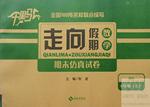题目内容
Since I moved to London, I have noticed that the image(形象、印象)of McDonald's in London isn't the same as that in China.
In China, McDonald's is a trendy(时尚的)western food restaurant and it's quite expensive. However, in the UK, many people think McDonald's produces cheap and bad quality food.
Once I suggested to a British friend of mine whether we could have dinner in McDonald's. He said "No. Let's eat some proper food. No junk food." Another time I asked a British friend of mine to have a drink in a McDonald's nearby. He said "Oh, no. I am wearing a suit. We had better find a decent(得体的)place." It seems for many British people, especially middle class people, going to McDonald's means losing face. They would rather go to some nicer restaurants and tip the waiters than go to McDonald's for some cheap quick food.
Who is eating at McDonald's then? The McDonald's restaurants i11 London are always full of people. I have noticed that many people dining in McDonald's are students and people from the working class. Of course there are a lot of international visitors too.
I don't have anything against McDonald's. That's why I still go to McDonald's from time to time and most importantly, I can use the Wi-Fi in McDonald's for free when I am travelling.
62. In China people think the food at McDonald's is_______.
A. cheap B. expensive C. junk food D. bad quality food
63. British friends think eating at McDonald's is_______.
A. proper B. improper C. decent D. quick
64. From the passage we know_______ don't eat at McDonald's.
A. students B. working class people
C. international visitors D. middle class people
65. Which is the best title of this passage?
A. McDonald's in London B. McDonald's in China
C. The photo of McDonald's D. The food of McDonald's
BBDA

 千里马走向假期期末仿真试卷寒假系列答案
千里马走向假期期末仿真试卷寒假系列答案
There are lots of popular writers in China, for example Han Han, FengJical, Tie Ning, Guo Jingming and so on. In my mind, Mo Yan is one of the most famous writers in China, because he is not only from Weifang but also good at writing.
Mo Yan was born in Gao Mi, Wei Fang. Now he is a 57-year-old writer. His real name is Guan Moye. Mo Yan is his pen name. It means “no speaking”. He began writing at the age of 26 and in 2011 his novel The Frog won the Mao Dun Prize in Literature. Since then, he has won lots of prizes.
In 2012, Mo Yan won the Nobel Prize in Literature. I’m proud of him, because I like writing. So I joined a writing workshop to improve my level of writing and I made lots of friends there.
Who is your favourite writer? Can you tell me?
【小题1】How many writers are mentioned in this passage?
| A.5 | B.6 | C.4 | D.7 |
| A.In Jiangsu. | B.In Zhejiang. |
| C.In Gao Mi. | D.In Nobel. |
| A.Frog | B.Guan Moye |
| C.Mao Dun | D.No Speaking |
| A.Because he likes Mo Yan. |
| B.Because he likes writing. |
| C.Because he likes some writers. |
| D.Because he wants to make some friends. |
| A.Gao Mi is Mo Yan’s hometown. |
| B.Mo Yan began writing in 1981. |
| C.Mo Yan won Nobel Prize in Literature in 2011. |
| D.Mo Yan is the writer’s favourite writer. |


